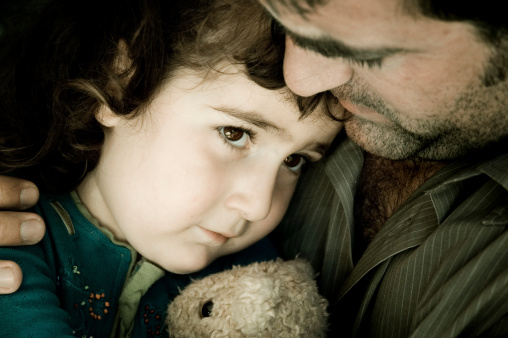 In divorce many people hire attorneys with the hope of receiving what the law entitles them to receive. They focus on their rights and ask their lawyer to help them get what “the law” provides, perhaps believe that this is the best way to protect their interests. Most people don’t realize how focusing on the law and “rights” is setting the bar very low and on occasion, guarantees them that they will need to settle for the very minimum rather than trying to achieve their most important goals.
Divorce laws are created to establish minimum standards for the government to apply if the family cannot come up with a solution on its own. For example, the child support guidelines give you an idea about the minimum amount that would be required for the support of your children if a judge is required to intervene. The property division that your lawyer tells you will be ordered under “the law” merely describes the minimum that the law will compel. The parenting schedule normally describes the minimum times that you must be allowed to see your children. Nevertheless, it is a curious aspect of divorce law that people often start out focusing on those minimums and do not stop to reflect on what might be possible.
Striving for minimums is an unusual way to begin down any path, particularly with something as important as family relationships. Outside of divorce, few of us would ever think that we should provide only the minimum to our family members. We would rarely respond to needs of our children, or our spouse, or a parent or even an aunt or uncle for that matter, and say “what is the very minimum that the law would compel me to do?” To the contrary, faced with these situations outside of divorce, we would be drawn to think in terms of doing the right thing; doing the best we can do under the circumstances. Yet, as soon as we enter the divorce world, we automatically assume this “minimum only” mentality and we hire lawyers to fight over those minimums.
No doubt some you are thinking that divorce is different because you are dealing with an ex spouse and that the rules of conscience and decency should not have the same sway as with a real family member. But is that really how it is?
First of all, if there are children involved, it is difficult to enforce minimums without catching them in the crossfire. Because your children will live in the same house as your former spouse for a significant portion of their lives, there is no way to force your spouse to accept minimums without impacting your children, at least to a degree. In addition, is your spouse, the mother or father of your children, someone who can be immediately relegated to the role of non-relative and allow you to feel a complete indifference to their well-being, (or worse)? No doubt, many divorcing people have found ways to view of their ex spouse in this way. However, most people, once they get past the anger, fear or sadness, admit that they do not hold this complete indifference and, in fact, express real caring, and concern for their ex spouse.
So, how do we shed the “minimums” mentality and approach divorce by setting the bar much higher? It will take more than one blog to cover the many different ways to create better settlements by appealing to higher standards. But here is a start. Go to www.collaborativelaw.org or to www.divorcechoice.com and find a divorce professional who speaks this language. You may be surprised by what is possible.
In divorce many people hire attorneys with the hope of receiving what the law entitles them to receive. They focus on their rights and ask their lawyer to help them get what “the law” provides, perhaps believe that this is the best way to protect their interests. Most people don’t realize how focusing on the law and “rights” is setting the bar very low and on occasion, guarantees them that they will need to settle for the very minimum rather than trying to achieve their most important goals.
Divorce laws are created to establish minimum standards for the government to apply if the family cannot come up with a solution on its own. For example, the child support guidelines give you an idea about the minimum amount that would be required for the support of your children if a judge is required to intervene. The property division that your lawyer tells you will be ordered under “the law” merely describes the minimum that the law will compel. The parenting schedule normally describes the minimum times that you must be allowed to see your children. Nevertheless, it is a curious aspect of divorce law that people often start out focusing on those minimums and do not stop to reflect on what might be possible.
Striving for minimums is an unusual way to begin down any path, particularly with something as important as family relationships. Outside of divorce, few of us would ever think that we should provide only the minimum to our family members. We would rarely respond to needs of our children, or our spouse, or a parent or even an aunt or uncle for that matter, and say “what is the very minimum that the law would compel me to do?” To the contrary, faced with these situations outside of divorce, we would be drawn to think in terms of doing the right thing; doing the best we can do under the circumstances. Yet, as soon as we enter the divorce world, we automatically assume this “minimum only” mentality and we hire lawyers to fight over those minimums.
No doubt some you are thinking that divorce is different because you are dealing with an ex spouse and that the rules of conscience and decency should not have the same sway as with a real family member. But is that really how it is?
First of all, if there are children involved, it is difficult to enforce minimums without catching them in the crossfire. Because your children will live in the same house as your former spouse for a significant portion of their lives, there is no way to force your spouse to accept minimums without impacting your children, at least to a degree. In addition, is your spouse, the mother or father of your children, someone who can be immediately relegated to the role of non-relative and allow you to feel a complete indifference to their well-being, (or worse)? No doubt, many divorcing people have found ways to view of their ex spouse in this way. However, most people, once they get past the anger, fear or sadness, admit that they do not hold this complete indifference and, in fact, express real caring, and concern for their ex spouse.
So, how do we shed the “minimums” mentality and approach divorce by setting the bar much higher? It will take more than one blog to cover the many different ways to create better settlements by appealing to higher standards. But here is a start. Go to www.collaborativelaw.org or to www.divorcechoice.com and find a divorce professional who speaks this language. You may be surprised by what is possible.  In divorce many people hire attorneys with the hope of receiving what the law entitles them to receive. They focus on their rights and ask their lawyer to help them get what “the law” provides, perhaps believe that this is the best way to protect their interests. Most people don’t realize how focusing on the law and “rights” is setting the bar very low and on occasion, guarantees them that they will need to settle for the very minimum rather than trying to achieve their most important goals.
Divorce laws are created to establish minimum standards for the government to apply if the family cannot come up with a solution on its own. For example, the child support guidelines give you an idea about the minimum amount that would be required for the support of your children if a judge is required to intervene. The property division that your lawyer tells you will be ordered under “the law” merely describes the minimum that the law will compel. The parenting schedule normally describes the minimum times that you must be allowed to see your children. Nevertheless, it is a curious aspect of divorce law that people often start out focusing on those minimums and do not stop to reflect on what might be possible.
Striving for minimums is an unusual way to begin down any path, particularly with something as important as family relationships. Outside of divorce, few of us would ever think that we should provide only the minimum to our family members. We would rarely respond to needs of our children, or our spouse, or a parent or even an aunt or uncle for that matter, and say “what is the very minimum that the law would compel me to do?” To the contrary, faced with these situations outside of divorce, we would be drawn to think in terms of doing the right thing; doing the best we can do under the circumstances. Yet, as soon as we enter the divorce world, we automatically assume this “minimum only” mentality and we hire lawyers to fight over those minimums.
No doubt some you are thinking that divorce is different because you are dealing with an ex spouse and that the rules of conscience and decency should not have the same sway as with a real family member. But is that really how it is?
First of all, if there are children involved, it is difficult to enforce minimums without catching them in the crossfire. Because your children will live in the same house as your former spouse for a significant portion of their lives, there is no way to force your spouse to accept minimums without impacting your children, at least to a degree. In addition, is your spouse, the mother or father of your children, someone who can be immediately relegated to the role of non-relative and allow you to feel a complete indifference to their well-being, (or worse)? No doubt, many divorcing people have found ways to view of their ex spouse in this way. However, most people, once they get past the anger, fear or sadness, admit that they do not hold this complete indifference and, in fact, express real caring, and concern for their ex spouse.
So, how do we shed the “minimums” mentality and approach divorce by setting the bar much higher? It will take more than one blog to cover the many different ways to create better settlements by appealing to higher standards. But here is a start. Go to www.collaborativelaw.org or to www.divorcechoice.com and find a divorce professional who speaks this language. You may be surprised by what is possible.
In divorce many people hire attorneys with the hope of receiving what the law entitles them to receive. They focus on their rights and ask their lawyer to help them get what “the law” provides, perhaps believe that this is the best way to protect their interests. Most people don’t realize how focusing on the law and “rights” is setting the bar very low and on occasion, guarantees them that they will need to settle for the very minimum rather than trying to achieve their most important goals.
Divorce laws are created to establish minimum standards for the government to apply if the family cannot come up with a solution on its own. For example, the child support guidelines give you an idea about the minimum amount that would be required for the support of your children if a judge is required to intervene. The property division that your lawyer tells you will be ordered under “the law” merely describes the minimum that the law will compel. The parenting schedule normally describes the minimum times that you must be allowed to see your children. Nevertheless, it is a curious aspect of divorce law that people often start out focusing on those minimums and do not stop to reflect on what might be possible.
Striving for minimums is an unusual way to begin down any path, particularly with something as important as family relationships. Outside of divorce, few of us would ever think that we should provide only the minimum to our family members. We would rarely respond to needs of our children, or our spouse, or a parent or even an aunt or uncle for that matter, and say “what is the very minimum that the law would compel me to do?” To the contrary, faced with these situations outside of divorce, we would be drawn to think in terms of doing the right thing; doing the best we can do under the circumstances. Yet, as soon as we enter the divorce world, we automatically assume this “minimum only” mentality and we hire lawyers to fight over those minimums.
No doubt some you are thinking that divorce is different because you are dealing with an ex spouse and that the rules of conscience and decency should not have the same sway as with a real family member. But is that really how it is?
First of all, if there are children involved, it is difficult to enforce minimums without catching them in the crossfire. Because your children will live in the same house as your former spouse for a significant portion of their lives, there is no way to force your spouse to accept minimums without impacting your children, at least to a degree. In addition, is your spouse, the mother or father of your children, someone who can be immediately relegated to the role of non-relative and allow you to feel a complete indifference to their well-being, (or worse)? No doubt, many divorcing people have found ways to view of their ex spouse in this way. However, most people, once they get past the anger, fear or sadness, admit that they do not hold this complete indifference and, in fact, express real caring, and concern for their ex spouse.
So, how do we shed the “minimums” mentality and approach divorce by setting the bar much higher? It will take more than one blog to cover the many different ways to create better settlements by appealing to higher standards. But here is a start. Go to www.collaborativelaw.org or to www.divorcechoice.com and find a divorce professional who speaks this language. You may be surprised by what is possible. 


 While it is possible to file for divorce in Minnesota on your own, without legal representation, it can be difficult to manage, not only legally but also emotionally. Here are some reasons to have an attorney and NOT try and represent yourself:
While it is possible to file for divorce in Minnesota on your own, without legal representation, it can be difficult to manage, not only legally but also emotionally. Here are some reasons to have an attorney and NOT try and represent yourself:

